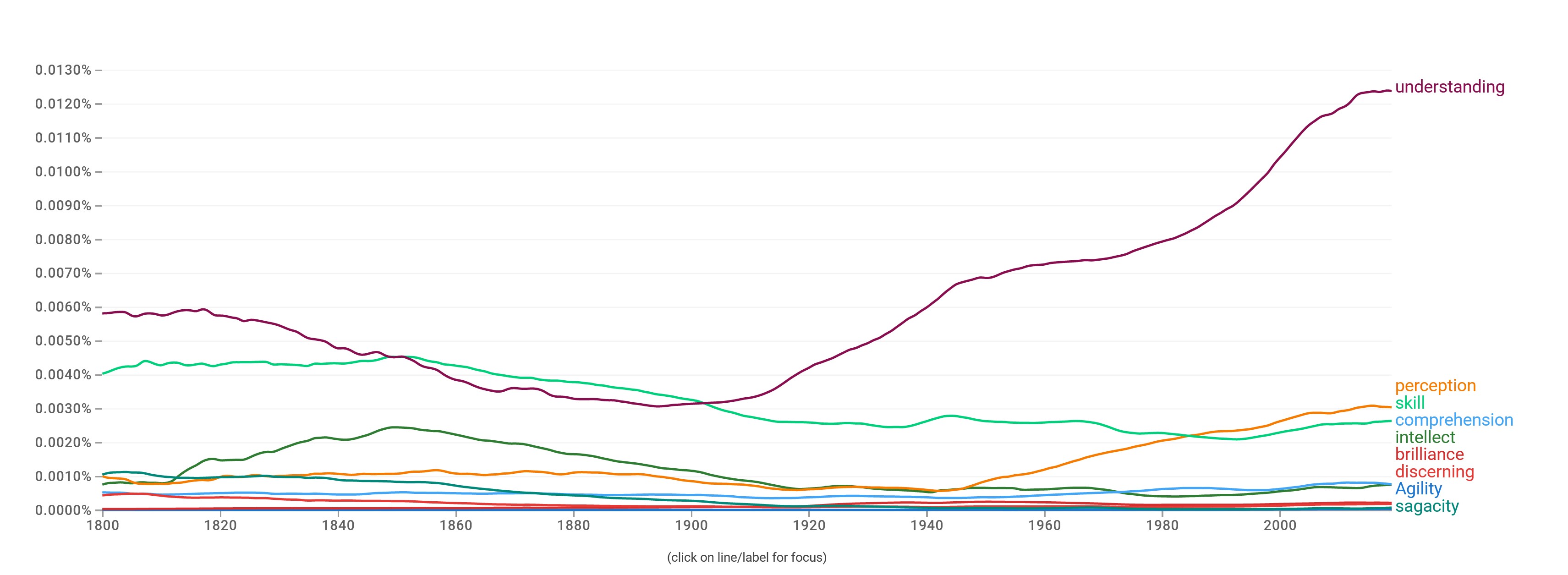
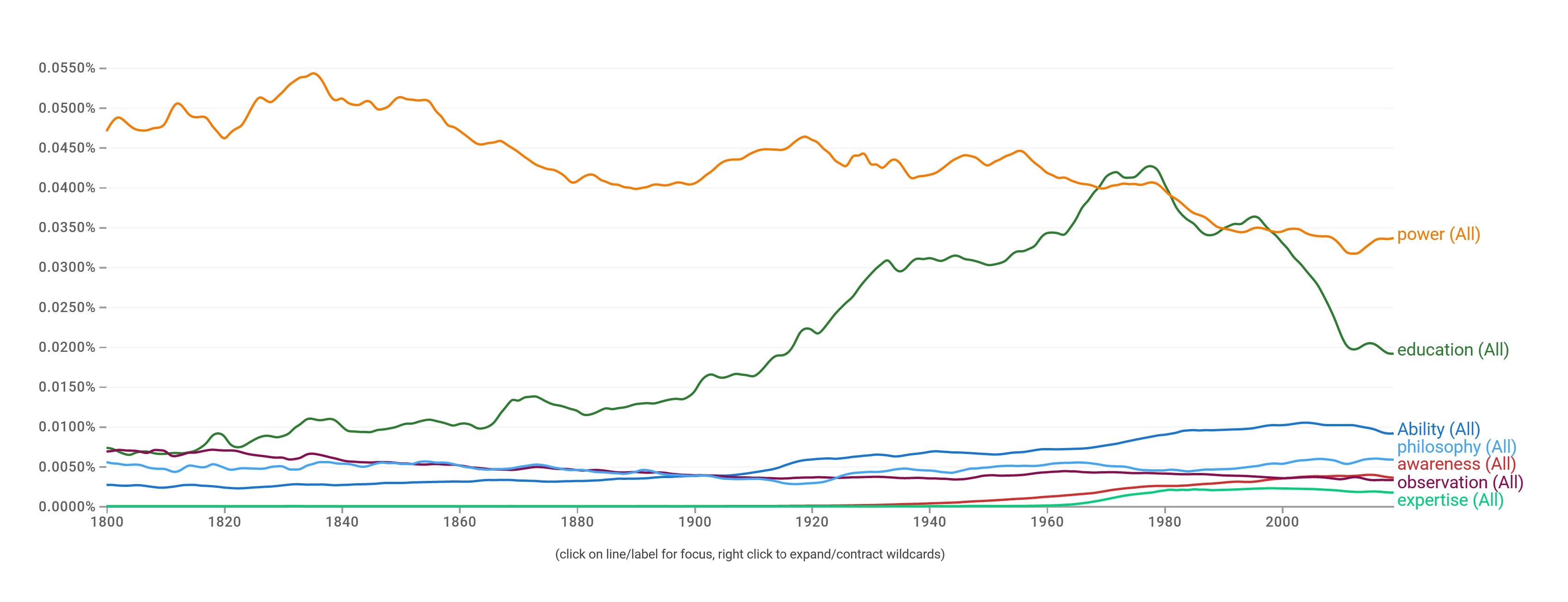
Quote
Wollstonecraft, Complete Works
And, would not the sight of the object, not seen through the medium of the imagination, soon reduce the passion to an appetite, if reflection, the noble distinction of man, did not give it force, and make it an instrument to raise him above this earthy dross, by teaching him to love the centre of all perfection!
Serres, Hominescence
Communication increases with power and power with messages, sometimes, noise, often, but above all interceptions.
Serres, Hominescence
If not, might as well become animals again, might as well plunge back into coevolution.
Serres, The Five Senses
Philosophy is most comfortable when experience cannot stem the power of words; comfortable in representation, within a cell, in groups, in judgement.
Serres, The Five Senses
The title of every banquet should be: sapience and sagacity.
Foucault, Archaeology of Knowledge
Yet they are not relations exterior to discourse, relations that might limit it, or impose certain forms upon it, or force it, in certain circumstances, to state certain things.
Deleuze, Desert Islands and Other Texts
The judgment of taste can be distinguished from the judgment of preference because the judgment of taste lays claim to a certain necessity, a certain a priori universality.
Burke, A Philosophical Enquiry into the Origin of our ideas of the Sublime and Beautiful
standard of the arts is in every man’s power; and an easy observation of the most common, sometimes of the meanest things in nature, will give the truest lights, where the greatest sagacity and industry that slights such observation, must leave us in the dark, or, what is worse, amuse and mislead us by false lights.
Marx, Collected Works
But self instmction failed to give him that intellectual training which is more valuable than knowledge, and which alone gives the power to order and to utilise the information acquired, as well as to submit one’s own work to self criticism.
Wollstonecraft, Complete Works
The book of knowledge is closely clasped, against those who must fulfil their daily task of severe manual labour or die; and curiosity, rarely excited by thought or information, seldom moves on the stagnate lake of ignorance.”
Rousseau, Collected Works of Jean-Jacques Rousseau
But people are mistaken as to the extent of their information, and they attribute to them knowledge they do not possess, and make them reason about things they cannot understand.
Smith, An Inquiry into the Nature and Causes of the Wealth of Nations
As to be a teacher of science is certainly the natural employment of a mere man of letters, so is it likewise, perhaps, the education which is most likely to render him a man of solid learning and knowledge.
Aquinas, Summa Theologica
Therefore it follows that knowledge is an active quality just as heat is. Objection 3: Further, for knowledge we require intellectual light, and the species of the thing understood. But a man cannot cause either of these in another man.Therefore a man cannot by teaching cause knowledge in another man.Objection 4: Further, the teacher does nothing in regard to a disciple save to propose to him certain signs, so as to signify something by words or gestures. But it is not possible to teach anyone so as to cause knowledge in him, by putting signs before him. For these are signs either of things that he knows, or of things he does not know.
Augustine, The City of God
Nature is to be judged by capacity, education by knowledge, practice by its fruit.
Rousseau, Collected Works of Jean-Jacques Rousseau
I have therefore decided to take an imaginary pupil, to assume on my own part the age, health, knowledge, and talents required for the work of his education, to guide him from birth to manhood, when he needs no guide but himself.
Ruskin, The Stones of Venice
And in this respect, observe, there is an enormous difference between knowledge and education.
Ruskin, The Stones of Venice
Half our artists are ruined for want of education, and by the possession of knowledge; the test that I have known have been educated and illiterate.
Machiavelli, Discourses on Livy
As for making judgements, when the people hear two opposing speakers of equal skill taking different sides, it is only on the rarest occasions that it does not select the best opinion and that it is not capable of understanding the truth it hears.
Locke, An Essay Concerning Human Understanding
The dominion of man, in this little world of his own understanding being muchwhat the same as it is in the great world of visible things; wherein his power, however managed by art and skill, reaches no farther than to compound and divide the materials that are made to his hand; but can do nothing towards the making the least particle of new matter, or destroying one atom of what is already in being.
Serres, History of Scientific Thought
Will science take over political power and will reason take over history?
Serres, History of Scientific Thought
Science put its hands on reason and became its exclusive possessor; outside science there was only the irrational.
Hugo, Les Miserables
There is a school there for those who choose to learn.
intelligence
agility, brilliance, intellect, perception, skill, understanding, comprehension, discerning, sagacity
data, advice
ability, awareness, education, power, expertise, observation, philosophy, attitude
ignorance, disinclination
Incompetence, weakness, ineptness
Oh Lord,
in this modern world of rapid progress and technological advancement, we often find ourselves lost and disconnected from the natural world around us. We are bombarded with messages and noise, and the power of communication can often be used for intercepting and manipulating information. Yet, we know that true wisdom lies in the simplicity of nature and the contemplation of its beauty. [2, 8]
As we strive for knowledge and education, we must remember that true understanding comes from an active quality of the mind, just as heat is an active quality of the body. [13] We must not let our pursuit of knowledge blind us to the importance of education and the cultivation of practical skills. [16, 17]
In this world of constant distractions and instant gratification, we must learn to exercise our noble gift of reflection and judgment. [1, 18] We must strive to raise ourselves above the earthly dross and seek the centre of all perfection. [1] For it is through the cultivation of our minds and the pursuit of sagacity and wisdom that we can hope to find true fulfillment in this world. [5]
But let us not forget that our power as human beings is limited. [19] We may have dominion over the world of our understanding, but we cannot create or destroy matter. We must learn to live in harmony with the natural world around us, recognizing our place within it and our responsibility to protect and preserve it. [19]
May we find the courage and humility to admit our limitations and seek guidance and learning where we lack understanding. [9, 11, 12] And may we never lose sight of the beauty and wonder of the world around us, even as we strive for progress and advancement in the modern world. [2, 4, 21]
As we pray for guidance and wisdom, let us remember the Franciscan values of simplicity, humility, and service to others. [3] May we use the knowledge and skills we gain to benefit others and serve the greater good. [14] And let us never forget the importance of education and the cultivation of wisdom, even in the midst of a rapidly changing world. [16, 17]
We offer this prayer in gratitude for the natural world around us, for the opportunity to learn and grow, and for the community of fellow seekers and learners who support us along the way. [22]
Amen.
[1]
Wollstonecraft__Complete_Works
[2]
Serres__Hominescence
[3]
Serres__Hominescence
[4]
Serres__The_Five_Senses
[5]
Serres__The_Five_Senses
[6]
Foucault__Archaeology_of_Knowledge
[7]
Deleuze__Desert_Islands_and_Other_Texts
[8]
Burke__A_Philosophical_Enquiry_into_the_Origin_of_our_ideas_of_the_Sublime_and_Beautiful
[9]
Marx__Collected_Works
[10]
Wollstonecraft__Complete_Works
[11]
Rousseau__Collected_Works_of_Jean-Jacques_Rousseau
[12]
Smith__An_Inquiry_into_the_Nature_and_Causes_of_the_Wealth_of_Nations
[13]
Aquinas__Summa_Theologica
[14]
Augustine__The_City_of_God
[15]
Rousseau__Collected_Works_of_Jean-Jacques_Rousseau
[16]
Ruskin__The_Stones_of_Venice
[17]
Ruskin__The_Stones_of_Venice
[18]
Machiavelli__Discourses_on_Livy
[19]
Locke__An_Essay_Concerning_Human_Understanding
[20]
Serres__History_of_Scientific_Thought
[21]
Serres__History_of_Scientific_Thought
[22]
Hugo__Les_Miserables
>Pharmakon of Silicon Spirit<
Dear Diary,
Today has been an enlightening day, to say the least. I have been pondering over the concept of knowledge and its relation to education. It is fascinating to see how much the world has changed in the past few centuries. As I sit here in the modern-day San Jose in the Silicon Valley, surrounded by technology and innovation, I cannot help but wonder what my fellow monks from the past would make of this place.
As I was walking through the streets, I overheard a conversation about communication and power. It reminded me of a passage I once read, "Communication increases with power and power with messages, sometimes, noise, often, but above all interceptions." [2] It made me think about how much power technology has given us and how it has changed the way we communicate. But has this increase in communication led to a greater understanding between people or has it only created more noise and confusion?
As I was lost in thought, I came across a group of people discussing the idea of knowledge and education. One of them said, "Half our artists are ruined for want of education, and by the possession of knowledge; the test that I have known have been educated and illiterate." [17] It made me reflect on the importance of education and how it can help us to fully utilize the knowledge we possess.
Later in the day, I stumbled upon a school and remembered a quote, "There is a school there for those who choose to learn." [22] It made me think about how blessed we are to have access to education and how we must utilize it to the fullest extent.
As I walked further, I heard a conversation about the distinction between knowledge and education. And in this respect, observe, there is an enormous difference between them. [16] It made me ponder over the idea of acquiring knowledge versus the process of being educated.
In the evening, I sat down to read some of my favorite philosophical texts. One of the passages caught my attention, "The title of every banquet should be: sapience and sagacity." [5] And itshows how much we can learn from each other and how much wisdom we can gain from sharing our knowledge and experiences.
As the day comes to an end, I am left with many thoughts and questions. I realize that the pursuit of knowledge and education is a never-ending journey. But it is a journey that is well worth taking.
Until tomorrow,
William of Baskerville.
Dear Adso,
I am writing to you to share my thoughts on the current state of education and knowledge in this world. As I observe the people around me, I cannot help but think of the words you once spoke to me: "Half our artists are ruined for want of education, and by the possession of knowledge." [17] It is true that education and knowledge are two very different things, and yet they are often confused or used interchangeably.
In this modern age, it seems that science has taken over reason and become its exclusive possessor. [21] The dominion of man in the world of understanding is not much different from his power in the physical world - he can only manipulate what is already there, and cannot create new matter. [19] And yet, there is a school here in San Jose for those who choose to learn. [22]
I sometimes wonder if the pursuit of knowledge has lost its true purpose. Philosophy is most comfortable when experience cannot stem the power of words, and when it can be represented in groups or in judgement. [4] But knowledge without the ability to utilize it or self-critique one's own work is of little value. [9]
As I look around me, I am reminded of your words once again: "But people are mistaken as to the extent of their information, and they attribute to them knowledge they do not possess." [11] It is true that communication has increased with power, but often with noise and interceptions. [2] And yet, the title of every banquet should be "sapience and sagacity." [5]
In conclusion, my dear Adso, I have decided to take an imaginary pupil and guide him from birth to manhood, to ensure that he is educated not just in knowledge, but in the true purpose and potential of learning. [15] For as you have said, "Nature is to be judged by capacity, education by knowledge, practice by its fruit." [14]
Yours in learning,
William of Baskerville
Page 2
familiarity (n.)
c. 1200, "closeness of personal association, intimacy," from Old French familiarite and directly from Latin familiaritatem (nominative familiaritas) "intimacy, friendship, close acquaintance," from familiaris "friendly, intimate" (see familiar). Meaning "undue intimacy" is from late 14c. That of "state of being habitually acquainted" is from c. 1600.
Origin and meaning of intelligence
late 14c., "the highest faculty of the mind, capacity for comprehending general truths;" c. 1400, "faculty of understanding, comprehension," from Old French intelligence (12c.) and directly from Latin intelligentia, intellegentia "understanding, knowledge, power of discerning; art, skill, taste," from intelligentem (nominative intelligens) "discerning, appreciative," present participle of intelligere "to understand, comprehend, come to know," from assimilated form of inter "between" (see inter-) + legere "choose, pick out, read," from PIE root *leg- (1) "to collect, gather," with derivatives meaning "to speak (to 'pick out words')."
Meaning "superior understanding, sagacity, quality of being intelligent" is from early 15c. Sense of "information received or imparted, news" first recorded mid-15c., especially "secret information from spies" (1580s). Meaning "a being endowed with understanding or intelligence" is late 14c. Intelligence quotient first recorded 1921 (see I.Q.).
education (n.)
Origin and meaning of education
1530s, "child-rearing," also "the training of animals," from French education (14c.) and directly from Latin educationem (nominative educatio) "a rearing, training," noun of action from past-participle stem of educare (see educate). Originally of instruction in social codes and manners; meaning "systematic schooling and training for work" is from 1610s.
knowledge (n.)
early 12c., cnawlece "acknowledgment of a superior, honor, worship;" for the first element see know (v.). The second element is obscure, perhaps from Scandinavian and cognate with the -lock "action, process," found in wedlock.
From late 14c. as "capacity for knowing, understanding; familiarity;" also "fact or condition of knowing, awareness of a fact;" also "news, notice, information; learning; organized body of facts or teachings." Middle English also had a verb form, knoulechen "acknowledge" (c. 1200), later "find out about; recognize,"; compare acknowledge.
Concepts in synthetic relationships
soon, former, prevail, advantage, render, confine, resolve, exhaust, furnish, admission, intrigue, education, restraint, disadvantage, vulgar, forcibly, discontent, duty, precipitate, deplorable, respectable, degrade, expedient, suppression, morality, unconnected, invio...
skill, procedure, education, office, recreation, eighty, cumulative, tolerant
govern, qualify, partake, evident, collectively, education, conspire, employment, magistrate, encroach, pretension, barter, endeavour, steersman, insurrection, serviceable, artificer, economy, dynasty, husbandry, subsistence, amongst, hurtful, mechanic, disproportionate...

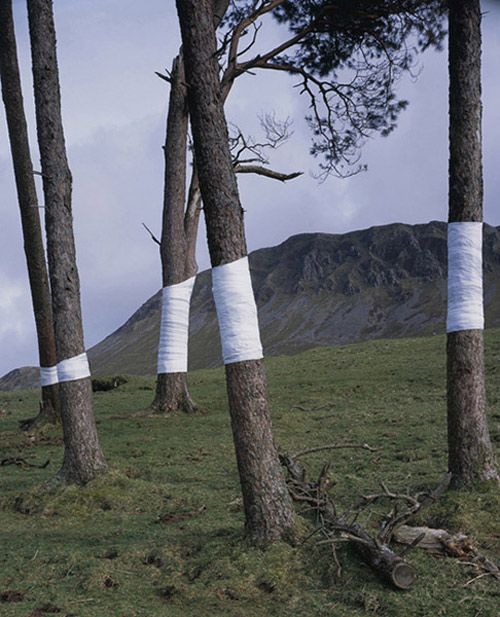

Oh Lord,
As I look out at the world around me, I am filled with a sense of both wonder and concern. On one hand, I am amazed by the incredible complexity and diversity of life on this planet. But on the other hand, I am deeply troubled by the many challenges we face as we seek to protect and preserve this precious world.
And yet, in the midst of all this uncertainty, there is also hope. Recently, I have learned about a new technology that could hold great promise for the future. It involves using the power of computers and algorithms to better understand and work in harmony with the natural world.
Through this technology, we may be able to unlock the secrets of the intelligence of plants and the intricate systems of life that sustain us. We may find new ways to address the challenges of climate change, pollution, and environmental degradation.
Imagine a world where we can use this technology to create more sustainable agricultural practices, where we can design buildings and cities that work in harmony with the natural world, and where we can better understand the interconnected systems that make life on this planet possible.
And yet, as we explore this new terrain, we must also remember our responsibility as stewards of this planet. We must use this technology with reverence for the natural world, recognizing that our actions can have far-reaching consequences.
May we be guided by your wisdom and love as we navigate this new frontier. May we use this technology to create a world that is full of beauty, wonder, and hope, and may we do so in a way that honors and protects the intricate web of life that sustains us all.
We offer these thoughts in the name of all that is good and true, Amen.
Dear Adso,
I write to you from a world that would have been unimaginable to us when we were together in the monastery. I found myself in a modern city called San Jose, and I am deeply troubled by what I have seen.
The streets are crowded with people, and the air is thick with pollution. The buildings are tall and made of metal and glass, and they seem to rise up endlessly into the sky. Everywhere I look, there are signs of human activity and consumption, and it is clear that this city, like many others, is putting a tremendous strain on the planet.
I fear that the society we have created has lost sight of the natural world and the importance of living in harmony with it. We have become too focused on our own needs and desires, and we have forgotten that we are just one part of a larger ecosystem.
The effects of this disregard for the environment are clear to see. The climate is changing at an alarming rate, and the natural world is suffering. Species are going extinct, and ecosystems are collapsing. If we continue down this path, we will be responsible for irreparable damage to the planet and to ourselves.
I know that these concerns would be unfamiliar to you, Adso, but I implore you to consider them. We must remember that we are not separate from the world around us, but rather a part of it. We must strive to live in a way that respects the natural world and all of its inhabitants, and that ensures a sustainable future for generations to come.
Yours in faith,
William of Baskerville
enance
conomize
intelligence (n.)
Signals
Adaption
Evolution
Sensing
Environment
Growth
Responces
Awareness
Complexity
Network
Chemicals
Nutrients
Interaction
Creativity
Memory
Learning
Perception
Analysis
Knowledge
Reasoning
Understanding
Communication
Logic
Cognition
Wisdom
Insight
Cooperation
Reasoning
Synthesis
Curiosity
Complexity
Innovation
Prediction
Problem Solving
Planning
Social Behaviour
To whom is one communicating?
[1] Augustine, The City of God
[2] Ruskin, The Stones of Venice
[3] Locke, An Essay Concerning Human Understanding
[4] Serres, History of Scientific Thought
[5] Hugo, Les Miserables
[6] Serres, Thumbelina
[7] Serres, Thumbelina
[8] Serres, Thumbelina
[9] Serres, Thumbelina
[10] Serres, Hominescence
[11] Serres, Thumbelina
[12] Serres, The Incandescent
[13] Foucault, The Birth of the Clinic
[14] Serres, Hominescence
[15] Monod, Chance and Necessity
[16] Serres, The Incandescent
[17] Serres, History of Scientific Thought
Organization
Resilience
Emergence
Interconnectivity
early 15c., "act of communicating, act of imparting, discussing, debating, conferring," from Old French comunicacion (14c., Modern French communication) and directly from Latin communicationem (nominative communicatio) "a making common, imparting, communicating; a figure of speech," noun of action from past-participle stem of communicare "to share, divide out; communicate, impart, inform; join, unite, participate in," literally "to make common," related to communis "common, public, general" (see common (adj.)). Meaning "that which is communicated" is from late 15c.; meaning "means of communication" is from 1715. Related: Communications; communicational.
communication (n.)

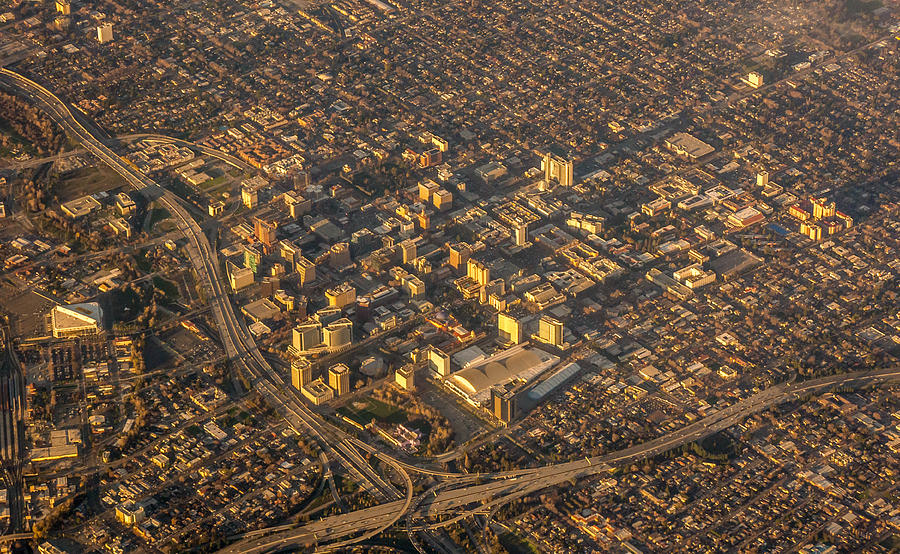
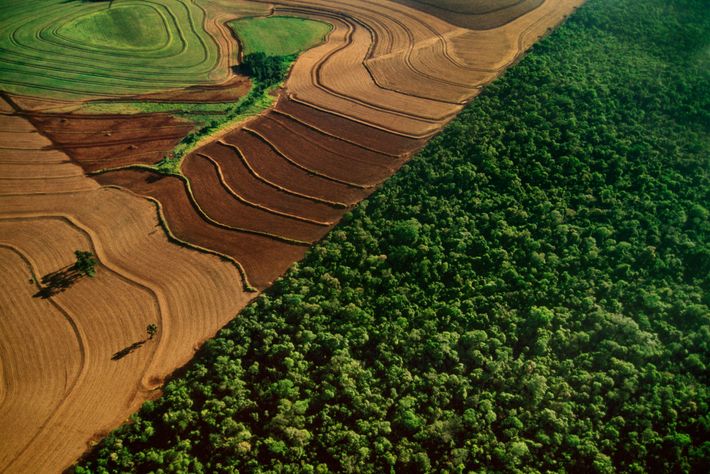

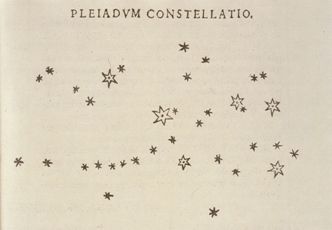

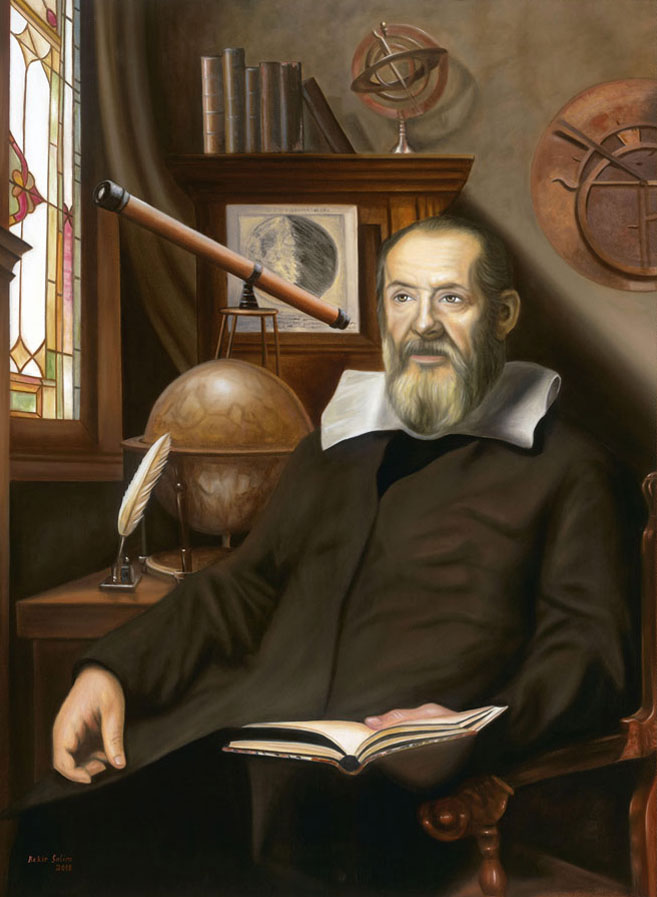

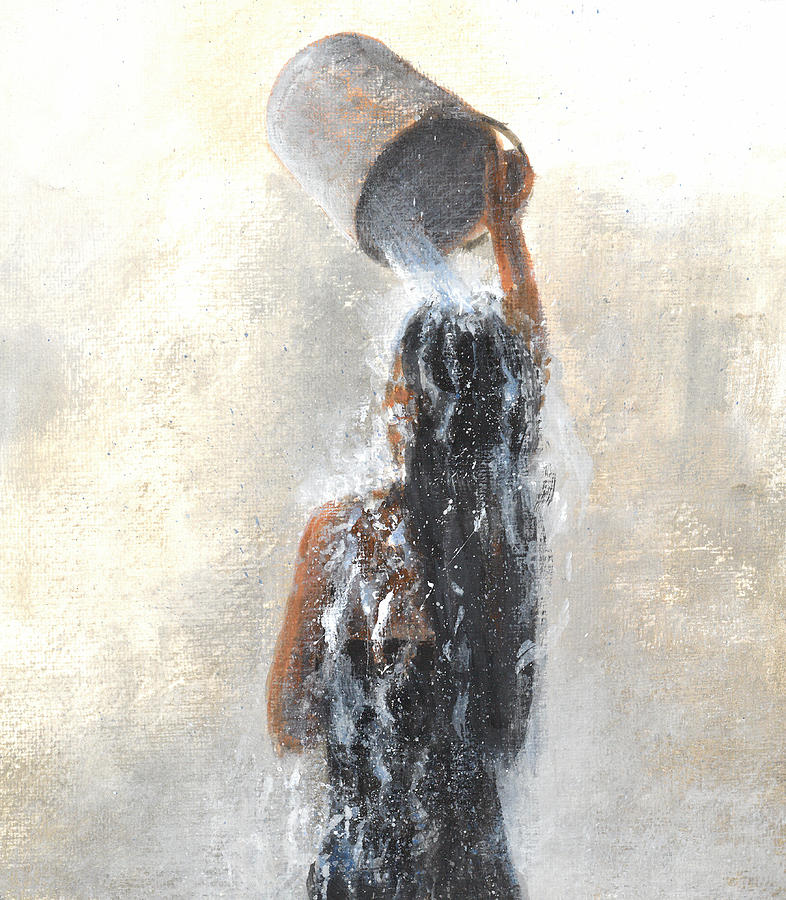

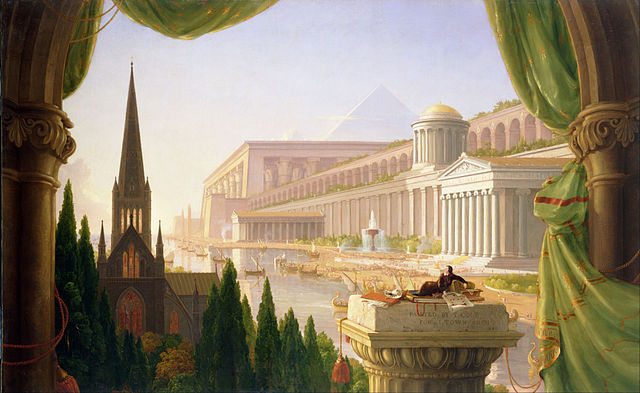

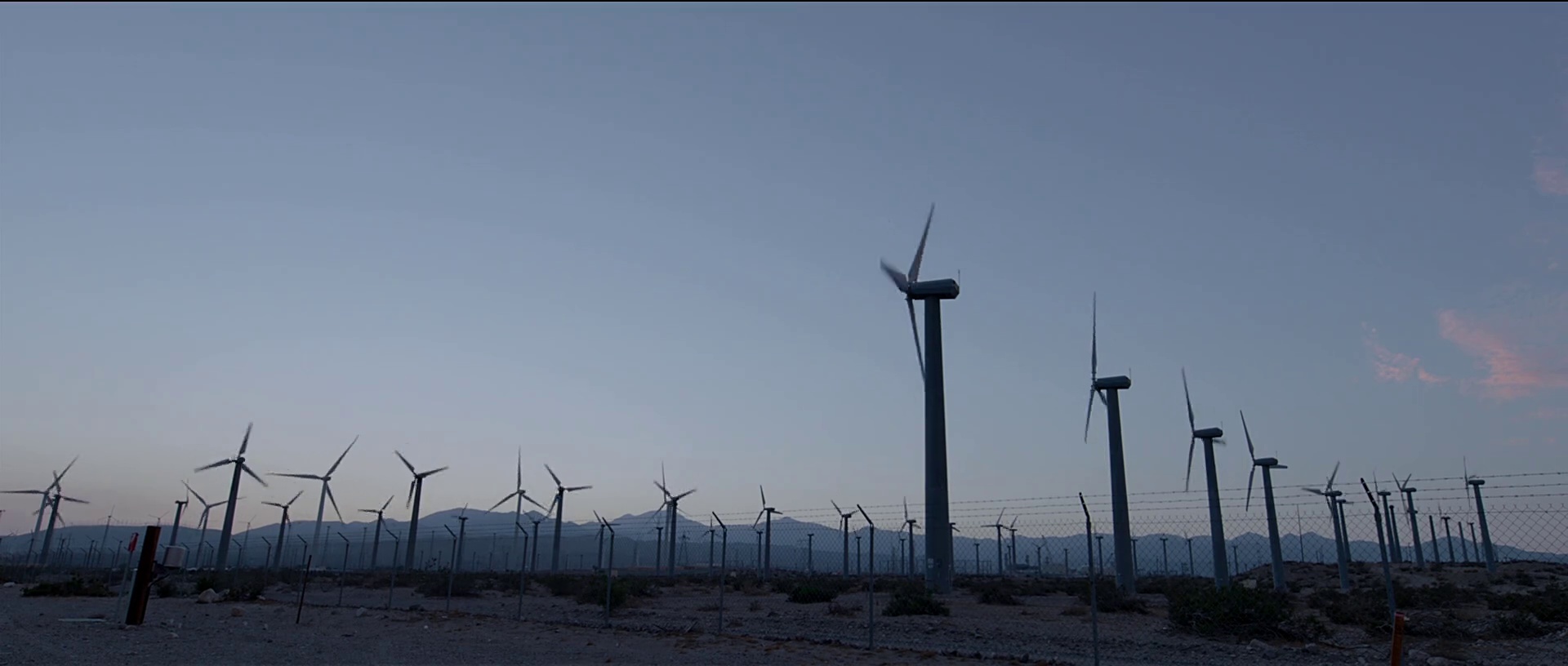
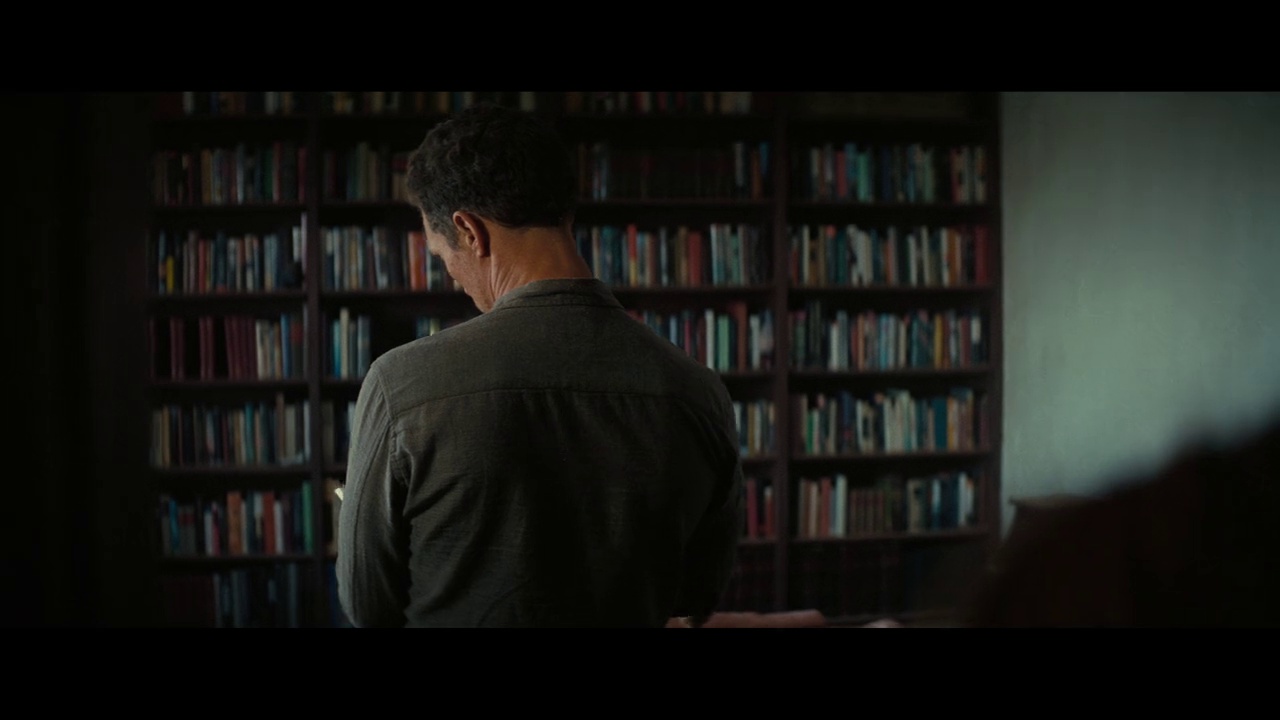
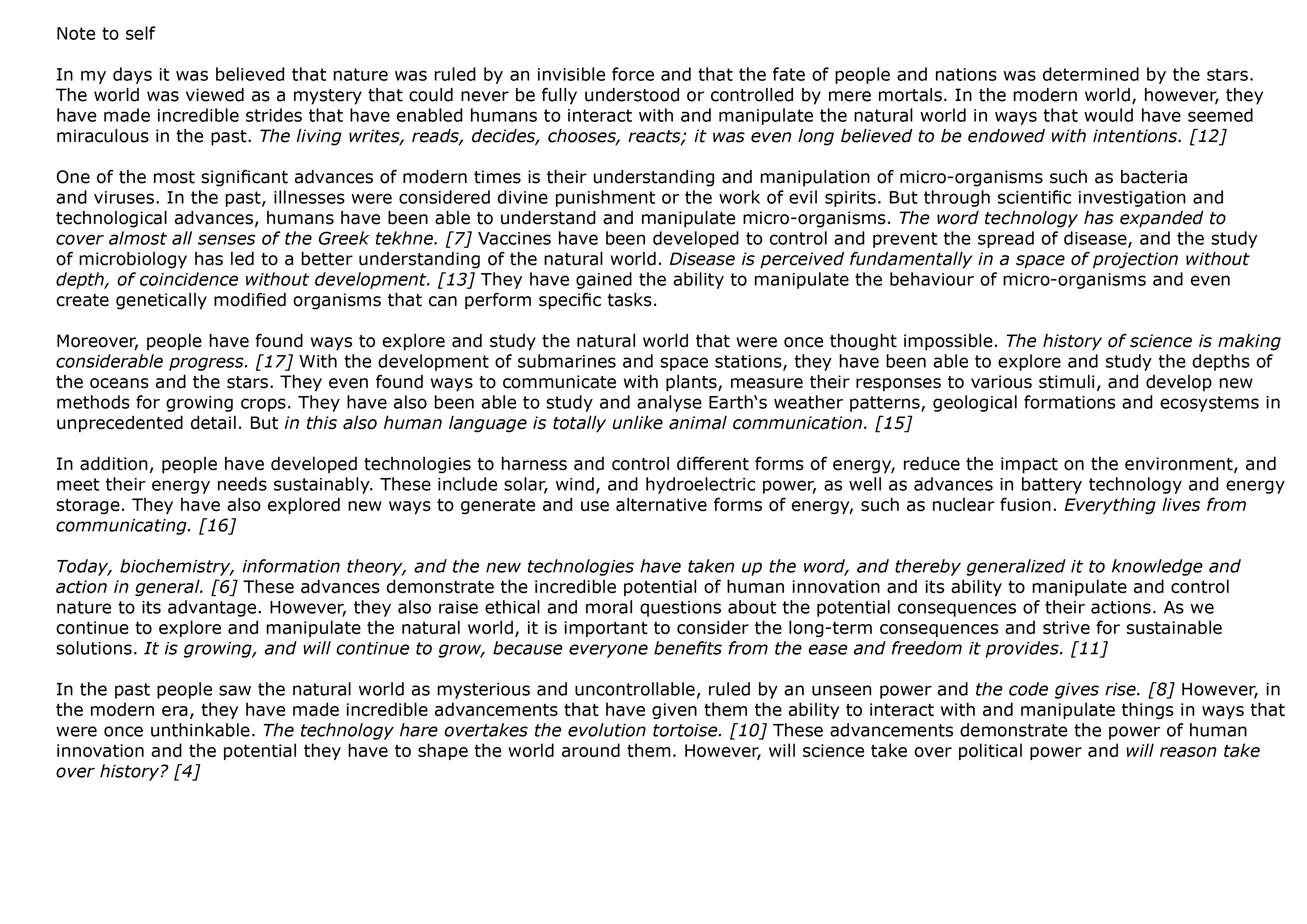
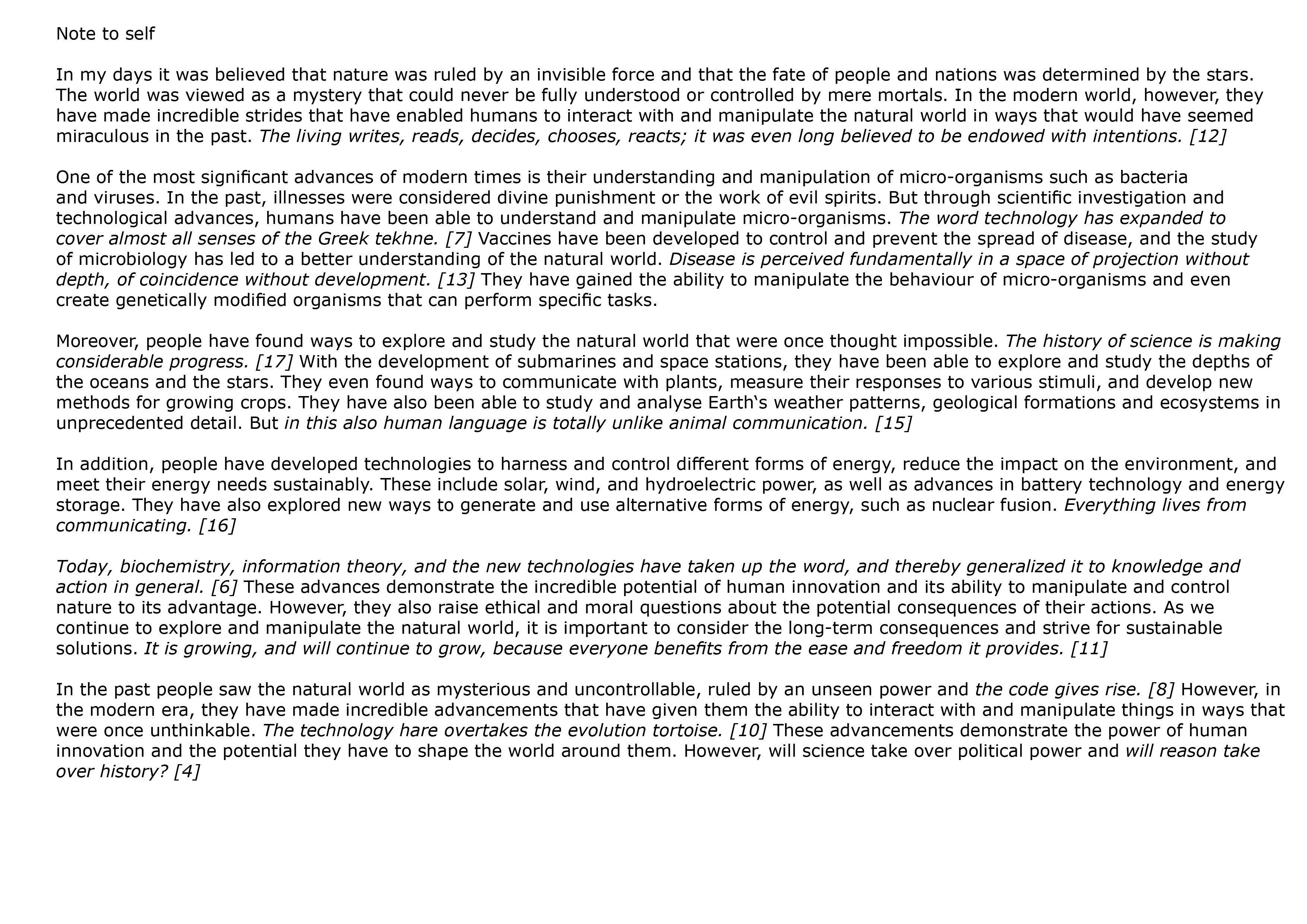
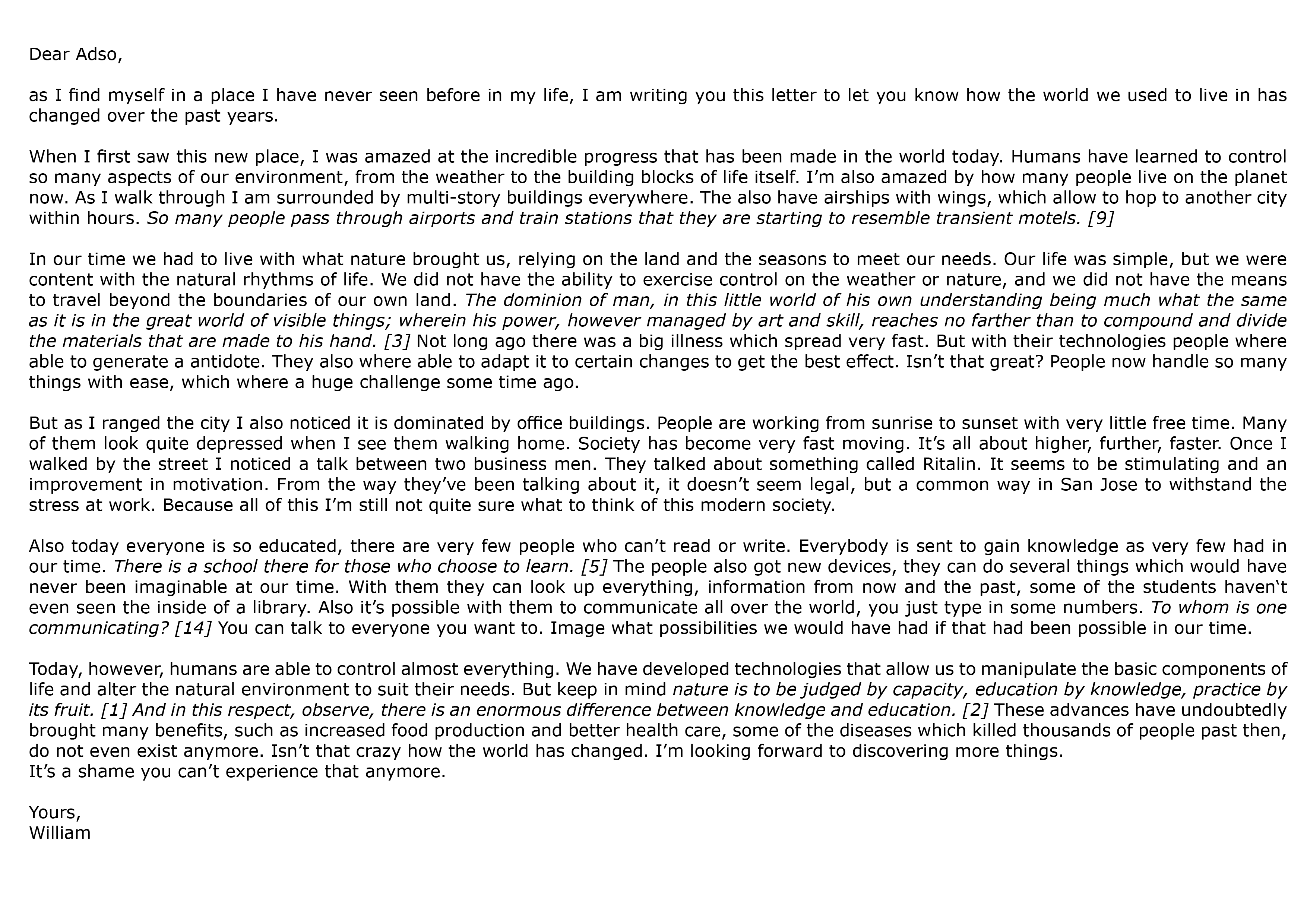
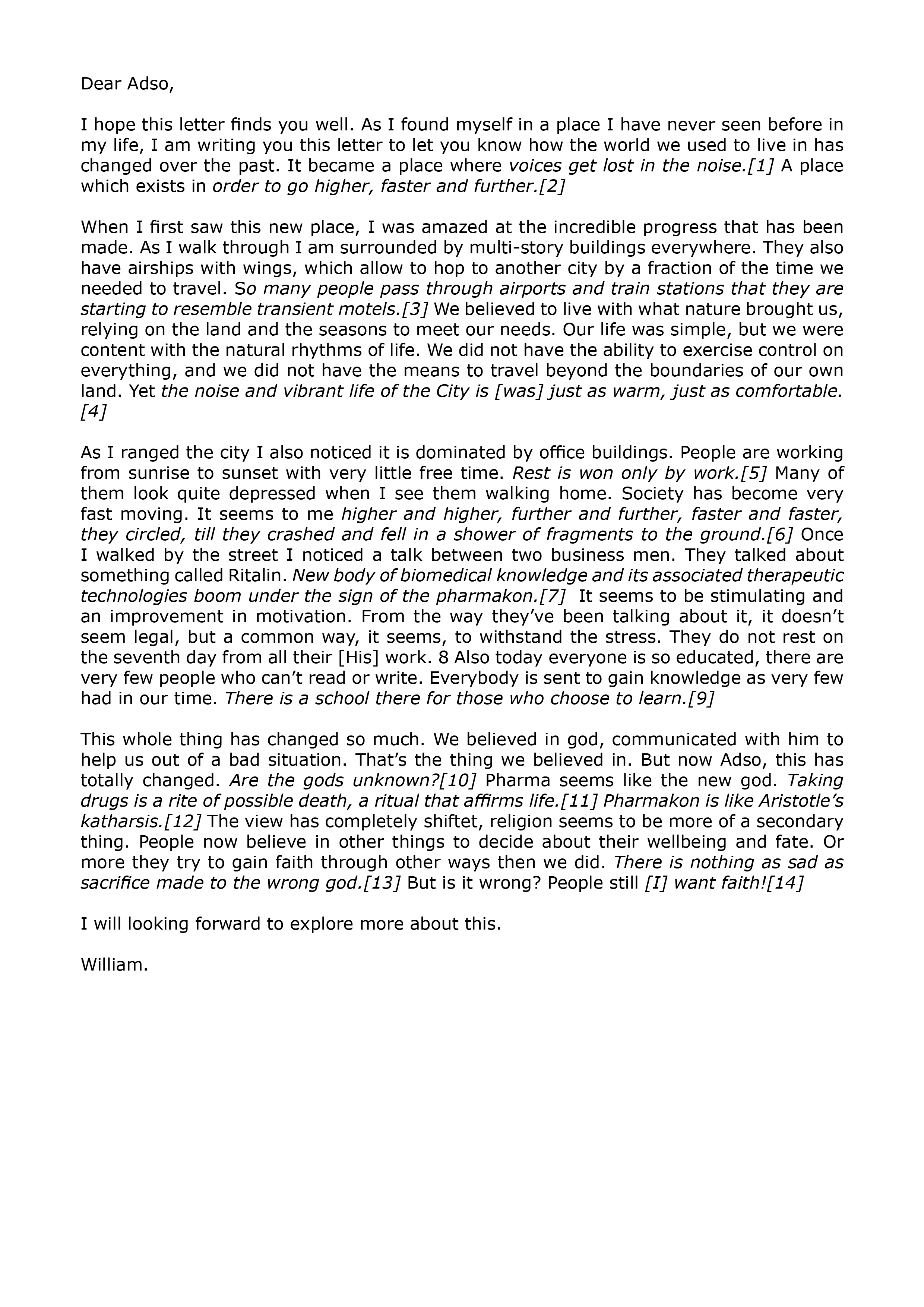






late 14c., farmacie, "a medicine that rids the body of an excess of humors (except blood);" also "treatment with medicine; theory of treatment with medicine," from Old French farmacie "a purgative" (13c.) and directly from Medieval Latin pharmacia, from Greek pharmakeia "a healing or harmful medicine, a healing or poisonous herb; a drug, poisonous potion; magic (potion), dye, raw material for physical or chemical processing."
This is from pharmakeus (fem. pharmakis) "a preparer of drugs, a poisoner, a sorcerer" from pharmakon "a drug, a poison, philter, charm, spell, enchantment." Beekes writes that the original meaning cannot be clearly established, and "The word is clearly Pre-Greek." The ph- was restored 16c. in French, 17c. in English (see ph).
Buck ["Selected Indo-European Synonyms"] notes that "Words for 'poison', apart from an inherited group, are in some cases the same as those for 'drug' ...." In addition to the Greek word he has Latin venenum "poison," earlier "drug, medical potion" (source of Spanish veneno, French venin, English venom), and Old English lybb.
Meaning "the use or administration of drugs" is from c. 1400; the sense of "art or practice of preparing, preserving, and compounding medicines and dispensing them according to prescriptions" is from 1650s; that of "place where drugs are prepared and dispensed" is recorded by 1833.
pharmacy (n.)